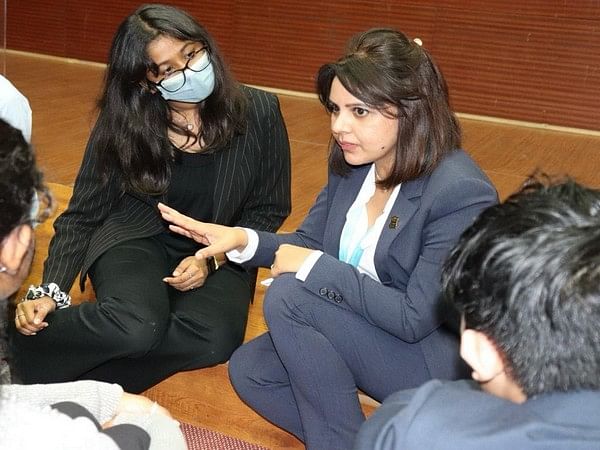
Bengaluru (Karnataka) [India], October 23 (ANI/NewsVoir): In its 29 States and 7 Union territories, India has a staggering 20 million schools with 315 million students. Almost two-thirds of these schools are government-run and need more focus on professional development for teachers, holistic learning methods for students and technological integration in all aspects of daily school life. The tie-up of 30 government schools in Delhi with IB (International Baccalaureate) is the beginning of this reformation of schools and can truly accelerate equity in education.
IB is designed to evoke curiosity in students about the world around them, thereby creating life-long learners. The curriculum is structured in a way that it exposes students to a wide range of activities, projects and experiences, that develop their personalities and prepare them for the competitive world ahead. Right from p.y.p (primary years programme), children learn to approach problem-solving in the design thinking method. Once a concept is introduced, it is researched, studied and understood through Maths, English and Science. Consequently, children develop a transdisciplinary approach very early on. This habit of scientific investigation is nurtured in m.y.p (middle years programme) through the global contexts and approaches to teaching and learning. In fact, the vertical alignment of the curriculum is quite an exception, what begins as a unit of inquiry in primary, evolves into the interdisciplinary unit and in d.p (diploma programme) it acquires a more formal structure through the extended essay and theory of knowledge. In other words, children are given several opportunities to explore and investigate a big idea in a structured manner with measurable outcomes. And in many ways, this form of learning provides the much-awaited reformation of the traditional Indian schooling system.
What is considered as extra-curricular in the traditional schooling system is embedded in the main academic curriculum and implemented via collaborative student-led initiatives. For instance, Oakridge Bengaluru’s JMUN (Junior Model United Nations) event is a platform where students speak as country delegates and debate over a host of ongoing world issues from food crisis, to global warming and waste disposal. Events like these are one among the many in the IB way of learning, that nurture leadership, public speaking, and problem-solving skills in students
In the words of Ken Robinson (International Advisor on Education) “It is time for an education system that is “flexible”, sees ‘connections’ between all types of knowledge and provides ample ‘opportunities’ for different ability groups and talents to flourish.”
To know more about Oakridge International School and their IB Programme visit www.oakridge.in/bengaluru
This story is provided by NewsVoir. ANI will not be responsible in any way for the content of this article. (ANI/NewsVoir)
This story is auto-generated from a syndicated feed. ThePrint holds no responsibility for its content.



